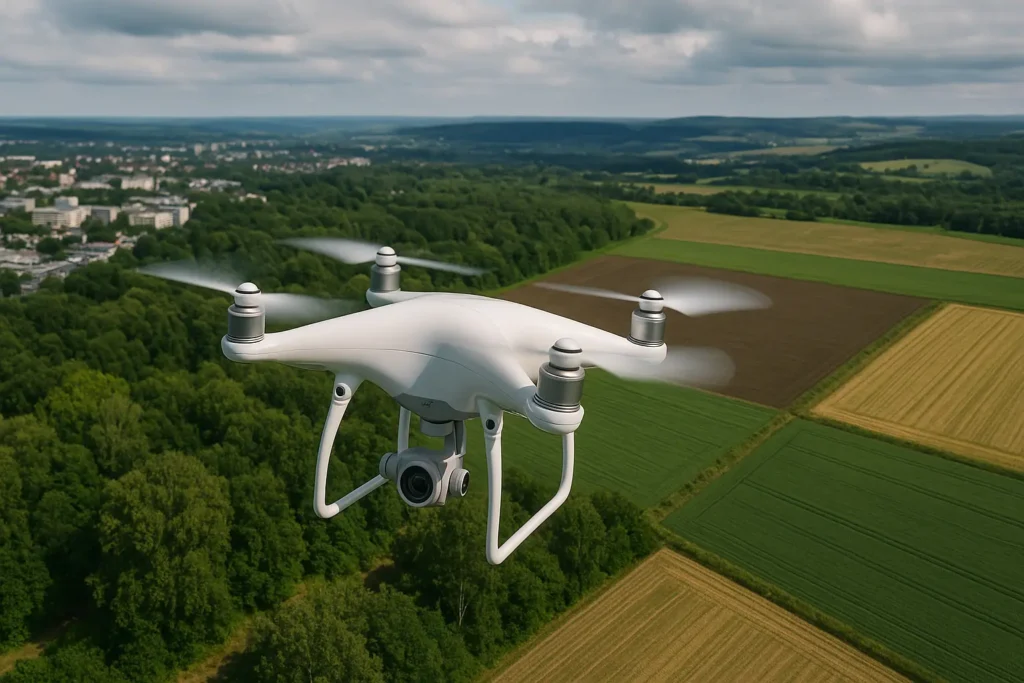Last month, I met Sarah at a coffee shop in Denver. She was showing me photos on her phone — not vacation pics, but GPS coordinates and property boundaries. Turns out, she makes $80,000 annually driving around shopping centers with specialized equipment, mapping competitor locations for retail chains. Her clients pay premium rates for this intelligence, and she’s booked solid for the next six months.
The geospatial data collection industry has quietly exploded into a significant economic sector. Independent contractors and small businesses are cashing in on the massive demand for location-based information. From real estate developers to logistics companies, organizations desperately need precise geographic data to make informed decisions. Even platforms like Onjabet rely on location-based services for regulatory compliance and user verification across different jurisdictions.
Here’s what most people don’t realize: this isn’t just about fancy GPS units anymore. The technology has become accessible enough that a motivated individual can start a profitable data collection business with a reasonable investment.
Equipment and Technology Infrastructure
The barrier to entry has dropped dramatically over the past five years. GPS surveying equipment reviews show that entry-level professional equipment now costs under $15,000 — my friend Mike started his boundary surveying business with less than that.
The technology stack for successful data collection businesses includes:
- High-precision GPS units capable of centimeter-level accuracy (not your car’s navigation system)
- Drone systems equipped with LiDAR sensors for aerial mapping and topographical analysis
- Mobile mapping software that integrates with cloud storage and client databases
- Ruggedized tablets and smartphones for field data collection and real-time processing
- Specialized cameras for photogrammetry and 3D reconstruction of physical spaces
What’s changed everything is the integration of these tools. Sarah can gather, process, and deliver comprehensive location intelligence within hours rather than the weeks it used to take. She told me about a project where she mapped an entire industrial complex in two days — something that would’ve taken a traditional surveying company a month.
But here’s the catch: knowing how to use the equipment is only half the battle. Understanding what clients actually need from the data separates successful contractors from those who struggle to find work.
Market Opportunities and Revenue Streams
The revenue potential varies dramatically by specialization, and I’ve seen contractors make anywhere from $50 to $500 per hour depending on their expertise. Geospatial industry market analysis indicates that specialized services command premium pricing, but you need to know where to look for opportunities.
Real estate applications represent the biggest market segment. Property developers need boundary surveys, topographical mapping, and environmental assessments before breaking ground. Insurance companies require detailed property assessments for risk evaluation. Local governments contract out infrastructure mapping and zoning verification.
The logistics sector creates another revenue stream that most people overlook. E-commerce companies need detailed mapping of delivery routes, warehouse locations, and last-mile distribution centers. This data helps optimize shipping costs and delivery times — directly impacting their bottom line.
Emergency services present an underserved market that’s ripe for disruption. Fire departments, police agencies, and emergency medical services need updated mapping data for response planning. Natural disaster recovery efforts require rapid assessment capabilities that traditional surveying companies can’t provide quickly enough.
Regulatory Compliance and Data Privacy
Operating in this space means navigating regulations that change depending on where you’re working and what you’re collecting. Different jurisdictions have specific requirements for surveying licenses, drone operations, and data handling procedures — and getting this wrong can shut down your business fast.
Privacy concerns are becoming more prominent, and frankly, they should be. Collecting location data near residential areas or commercial properties requires understanding local privacy laws and obtaining proper permissions. Some states have strict regulations about aerial photography and data collection near sensitive facilities.
Data security represents another compliance challenge that many contractors underestimate. Clients expect encrypted data transmission and secure storage solutions. You must implement cybersecurity measures that protect sensitive location information from unauthorized access.
Professional liability insurance is becoming standard for data collection services. The financial risks of providing inaccurate location data can be substantial, particularly for construction projects or property transactions. I’ve seen contractors lose everything over measurement errors.
The business model for geospatial data collection services depends on building relationships with repeat clients. One-time projects rarely provide sustainable income, but long-term contracts with developers, government agencies, or logistics companies can generate predictable revenue streams.
Technology investment requires careful planning. Equipment depreciation, software licensing, and training costs can quickly consume profits if not managed properly. Successful operators often specialize in specific market segments to maximize their equipment utilization.
The future of this industry depends on balancing automation with human expertise. While technology can handle routine data collection tasks, interpreting results and providing actionable insights still requires skilled professionals.
Market competition is intensifying as more people recognize the income potential. Contractors who can differentiate themselves through specialized skills, faster turnaround times, or superior data quality will maintain their competitive advantages.
Also Read-Innovative Technologies for Personalized Apnea Therapy: Automatic CPAP Machines
